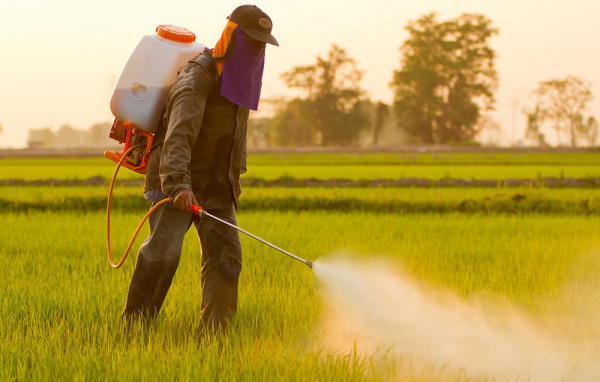
Farmers are an important stakeholder in environmental management.Their work on the farm has direct and indirect impacts on the environment.
Farmers are encouraged to ensure sustainability of their operations, so as to enjoy the full benefits of environmental resources.
Failure to protect the environment will result in decreased yields over time.
The use of organic and biological controls for pests, herbs and plant growth enhancement is the most ideal, in the interest of preserving the environment especially pollution prevention.
However, where chemicals should be used, precaution should be taken to ensure human safety as well as a clean environment.
Most of the chemicals that are used on farms; pesticides, herbicides and fertilisers, among others, are classified as hazardous substances.
The following dos and don’ts are necessary when handling such substances on the farm:
Do:
- Chamisa under fire over US$120K donation
- Mavhunga puts DeMbare into Chibuku quarterfinals
- Pension funds bet on Cabora Bassa oilfields
- Councils defy govt fire tender directive
Keep Reading
1. Use appropriate protective clothing to be safe from the harmful effects of hazardous substances.
2. Know your pest(s) and consider alternatives before you treat with pesticides
3. Read the label carefully before you purchase the pesticide
4. Choose the form of pesticide best suited to your target site and the pest you want to control
5. Transport pesticides securely stowed in a labelled car trunk, in the back of a truck away from passengers, food stuffs and animal feed.
6. Read the label again before opening the container (each and every time).
7. Use the proper safety equipment and protective clothing listed on the label.
8. Apply the correct dosage as guided by the Safety Data Sheet (SDS) or label.
9. Apply only to crops (targets) identified on the label.
10. Keep detailed records of all pesticides used and the environmental conditions at the time of application.
11. Triple rinse all tools and equipment and apply rinse water to target according to label.
12. Wash clothing worn when using pesticides separately from other laundry.
13. Call a doctor, nearest clinic immediately in the case of accidental exposure.
14. Properly store chemicals under lock and key in original containers that are tightly closed, labelled and securely stored.
15. Dispose of unused or unwanted pesticides properly as guided by the SDS or manufacturer.
Do not:
1. Purchase more than you will use in one season.
2. Handle or apply pesticides when you are not feeling well.
3. Smoke or eat while applying pesticides.
4. Inhale pesticide dusts, sprays, vapours or fumes.
5. Mix or apply a pesticide near a well head.
6. Endanger the environment by using excess quantities of pesticide, applying to non-targets or applying at the wrong time.
7. Use on targets not specified on the label (if it is labelled only for fruit trees, do not use it on shrubs)
8. Allow pets or people access to the treated area prior to labelled re-entry time
Environmental Facts, Tips and Updates are published weekly by the Environmental Management Agency. Send your feedback to; [email protected]. Follow us on Facebook; Environmental Management Agency and Twitter; @EMAeep or visit our website www.ema.co.zw. Alternatively, call us on: Tel 04-305550/305407 and Toll-free 08080028; or use our WhatsApp platform 0779565707. We are ready to listen.











